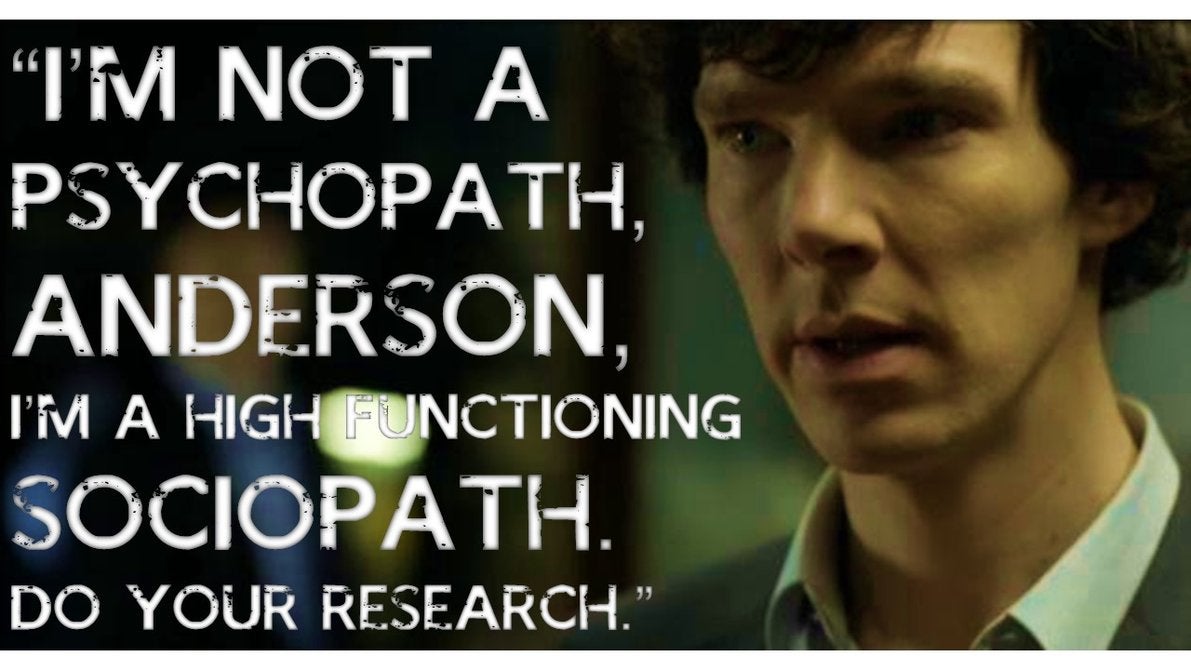
Psychopaths in fiction are understood to be serial killers for motives barely discernible or sufficient to the rest of us. Once one appears, the balance of the story, while it will likely contain some hair-raising passages, is actually pretty lame and pointless for the avid armchair investigator. It morphs into a race-to-catch-him-before-he-kills-again thriller. So who are these mysterious story spoilers, these cold fish, these mass murderers, and what drives them to do what they do?
Professor Kevin Dutton is a fellow of the Royal Society of Medicine and of the Society for the Scientific Study of Psychopathy. He has spent his career at the University of Oxford studying psychopaths, and is the author of a previous popular science book on the subject, The Wisdom of Psychopaths: What Saints, Spies, and Serial Killers Can Teach Us about Success.
Andy McNab is a former SAS officer and the successful author of several war thrillers, two of which are purported autobiographies of action during the Iraq War. He is also the highest scorer ever in Dr. Dutton's ongoing psychopathic research project.
The purpose of The Good Psychopath's Guide to Success, co-authored by this unlikely pair, is to expose the more useful qualities of the psychopath and to teach the diligent reader how to get in touch with them in himself, to improve his own life.
Many of the qualities Dutton attributes to psychopaths are positive or neutral. Charisma, fearlessness and mental toughness, ability to monofocus, and impulsivity are all normal and generally harmless traits. But add in a total lack of both empathy and the capacity for remorse, and you may be looking at a psychopath. Not that psychopaths don't understand empathy on an intellectual level; they don't––literally can't, if Dutton is correct––feel it, although most of them are superb manipulators of the emotions of others. This seems confusing, in light of his apparently conflicting theory that psychopathic characteristics can be selected and reinforced in the average person. Like many self-help books, this one has interactive quizzes at the end of many chapters, so you can evaluate your own psychopathic tendencies. Or you can take this test online.
 So what did I learn from this book? I learned that brain patterns in psychopaths are different from the norm. Parts of the amygdala, the "crocodile brain" that controls emotion, are missing or malfunctioning in psychopaths. Many of the qualities that define psychopathy are present in all of us, in varying degrees at various times, but the psychopath is literally unable to make certain mental and emotional leaps and connections that define civilized society.
So what did I learn from this book? I learned that brain patterns in psychopaths are different from the norm. Parts of the amygdala, the "crocodile brain" that controls emotion, are missing or malfunctioning in psychopaths. Many of the qualities that define psychopathy are present in all of us, in varying degrees at various times, but the psychopath is literally unable to make certain mental and emotional leaps and connections that define civilized society.In war and sports, psychophaths can be assets; their lightning-fast decisiveness, fearlessness, and unrelenting drive toward a goal, regardless of the price paid––by others––can achieve objectives the more scrupulous might not. Their criminality, or lack of it, seems to be situational, rather than proceeding from anything recognizable as conscience or empathy. The cleverest of them may become CEOs of major corporations, sports stars, or politicians. However, according to this article in LiveScience, while psychopaths make up only one percent of the general population, they comprise 25 percent of all men in federal prisons. Yikes!
The Good Psychopath's Guide had rather a lot of chummy "me and my mate Andy" passages that made me wonder a bit about the relationship between researcher and subject. And an annoyingly EXCESSIVE number of words were CAPITALIZED, presumably for emphasis. The sections Andy wrote display a level of narcissism and sheer bloody-mindedness that we might expect from a psychopath. What I hadn't expected was his pervasive sense of humor, even when discussing the torture he underwent as a POW in Iraq.
But did any of this help me to better understand and appreciate the psychopath of detective fiction? Or how to channel my own inner psychopath to improve my life? Not really; the emotional disconnect required seems to be inborn or learned very young. The message seems to be: don't waffle, go straight for what you want, ignoring any faces you happen to step on in the process, unless they can be useful to you. Don't take anything personally, even defeat, but look for advantage in every event. (Nice if you can manage it.)
The book was full of wickedly humorous anecdotes, and several jokes that seemed to be stuck in anywhere, rather than to illustrate a particular point. It offers a lively and interesting, if somewhat troubling, look at a condition most of us, I hope, will never really understand. Hannibal Lecter and The Joker are no more comprehensible to me than they were before.


Interesting review, Peri, thanks. I know some mental health professionals who work with psychopaths in a prison setting, and they say psychopaths commonly view other people in two ways: they are either hypocrites, who really see the world like psychopaths do, but for whatever reason, possibly cowardice or lack of opportunity, don't act upon those feelings; or chumps, who deserve being victimized by people like them. Apparently, the best way to work with psychopaths in therapy is to show them what's in it for them to treat other people nicely and obey the law, rather than to play on their feelings of guilt or empathy, because they lack those feelings.
ReplyDeleteSome researchers believe psychopathy is a neurological condition that can be detected in some very young children. This is a controversial issue. The New York Times had an article about this a few years ago: http://www.nytimes.com/2012/05/13/magazine/can-you-call-a-9-year-old-a-psychopath.html?pagewanted=all&_r=0.
Georgette, that NYT article is chilling, and seems to support the theory that psychopaths' brains are wired differently. But if a psychopath is completely unable to relate to others and totally goal driven, why do so many fictional psychopaths derive great emotional pleasure from their cruelty? Wouldn't that require some level of empathy, however twisted? That kind of cruelty would seem to be a different condition entirely.
ReplyDeleteOy, Peri. I think you're describing a sadist. The DSM-V doesn't recognize a separate sadistic personality disorder diagnosis, because sadism most often co-occurs with a variety of other psychopathological diagnoses. The DSM-V does list sexual sadism disorder as a paraphilia.
ReplyDelete